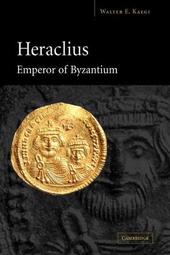
|
Heraclius, Emperor of Byzantium
Paperback / softback
Main Details
Description
This book evaluates the life and empire of the pivotal yet controversial and poorly understood Byzantine emperor Heraclius (AD 610-641), a contemporary of the Prophet Muhammad. Heraclius' reign is critical for understanding the background to fundamental changes in the Balkans and the Middle East, including the emergence of Islam, at the end of antiquity. Heraclius captured and lost important swathes of territory, including Jerusalem and Syria and Egypt. Skills in exploiting divisions within the ranks of his opponents, and encouraging the switching of sides and the breakdown of morale, provided Heraclius with his greatest triumphs, yet they proved to be of little value when he finally confronted the early Islamic conquests. The author synthesizes diverse primary sources, including those in Greek and Arabic, in the light of more recent historical scholarship. The varied Mediterranean and Middle Eastern context stretches from North Africa to Syria, Armenia and what is modern Iraq.
Author Biography
Walter E. Kaegi is Professor of History, The University of Chicago. He is the author of many books, including Byzantium and the Decline of Rome (1968), Byzantine Military Unrest 471-843 (1981), Army, Society and Religion in Byzantium (1982), Some Thoughts on Byzantine Military Strategy (1983), and Byzantium and the Early Islamic Conquests (1992, paperback 1995).
Reviews'Kaegi offers a comprehensive and lucid analysis of Roman and Persian relationships in the early seventh century ... Kaegi's study usefully fills out an all too common gap in modern perceptions of early medieval history.' Times Literary Supplement 'Kaegi is a master of his sources and this biography will provide the starting point for future serious study of the emperor.' History Today 'Kaegi brings his broad knowledge of Eastern sources to this biography, the first in English.' Judith Herrin, BBC History '... a compelling assessment of an extraordinary reign.' Journal of Ecclesiastical History
|